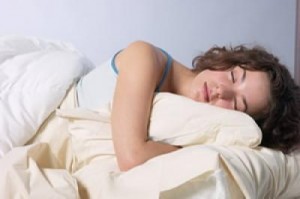
More evidence that low-calorie sweeteners are bad for your health
Studies show that artificial sweeteners can raise the risk of hypertension, metabolic syndrome, type 2 diabetes and heart disease, including stroke.

Most people experience sleeplessness at some time in their lives, for instance before an exam or during emotional upheaval.
Usually this will pass after the obvious cause has gone, but if a pattern of sleeplessness becomes established it can be difficult to break.
The first thing to remember is that sleep is not the same as relaxation. Sleep is an active state that is essential for physical and mental restoration. These days, many of us simply don’t get enough of it either because we do not recognise its importance or because we have trouble falling asleep even when we’re tired.
Lack of sleep has long been known to impact on heart health, mood and memory. Sleep deprivation has also been shown to adversely affect glucose tolerance as well as glucose and insulin regulation.
One US study found that sleep debt, a situation frequently imposed by modern lifestyles, can result in profound metabolic alterations. Researchers found that just one week of sleep deprivation altered subjects’ hormone levels (produced lower levels of thyroid hormones and higher levels of stress hormones) as well as their capacity to metabolise carbohydrates.
Under normal circumstances we spend a third of our lives in bed, so getting the most from your sleep time is possibly the simplest way to improve your health and your resistance to many of the toxic elements you encounter each day.
To get a better night’s sleep, consider the following:
Bedrooms are for sleeping. Remove all other distractions from your bedroom, including TVs, computers, bills to be paid and any work brought home from the office.
Keep your sleep schedule consistent. Plan regular hours of sleep each day, then stick to the programme.
Don’t exercise or involve yourself in difficult mental tasks near bedtime. Exercise during the day however may help ensure better sleep.
Don’t drink before bedtime. It is a myth that alcohol helps us sleep. Instead, it temporarily depresses the nervous system and is then rapidly metabolised, causing a rebound stimulation a few hours later. The same goes for caffeine and cigarettes, both of which can keep you awake if you have them too close to bedtime.
Keep the bedroom dark. In fact, the darker the better. Darkness stimulates the nightly production of melatonin, the hormone necessary to regulate our day/night, sleep/wake cycles. Get rid of nightlights, cover lighted clockfaces and make sure your curtains are lined to keep out any light from outside.
Use essential oils. simply sprinkling some lavender on your pillow may be enough to help send you off. Or you can try making our beauty sleep essential oil mixture in a warm bath before bedtime. See our chart for more on essential oil properties and blends.
Open a window. Fresh air can be an aid to refreshing sleep.
Made the bedroom an EMF-free zone. Some authorities believe that electromagnetic fields are harmful and being surrounded by them means our sleep can be disrupted or become less beneficial. Try having as few electrical gadgets as you feel comfortable with in the bedroom. Put stereos, computers and TVs somewhere else; consider a battery-powered alarm clock. Don’t sleep under an electric blanket or on a waterbed. If you do use these, unplug them before going to bed (don’t just turn them off).
Is it time to replace the mattress? Your mattress should provide firm support to your body throughout the night. Soft, sagging mattresses can lead to backache, sleeplessness and stress. Although expensive, the newer varieties of latex rubber mattresses, or those made from space age materials such as Tempur, have many advantages over sprung types including firmness, the ability to mould their shape to the body, lower levels of dust mites and no metal parts to attract EMFs to the bed.
Night-waking can be a sign of nighttime hypoglycaemia. Eat a light snack before bedtime or drink a glass of warm milk, which contains tryptophan, an amino acid known to induce sleep. If night waking is caused by hot-flushes consider keeping a small spray bottle by the bed infused with a few drops of essential oils such as lavender or rose or chamomile. A quick spray on the face or body can be cooling and calming and get you back to sleep fairly quickly.
Snoring can create poor sleep for both the snorer and his/her partner. If the snorer is overweight, losing weight may help eliminate some of the fat in the throat, thus clearing breathing passages. Allergies can also cause snoring, so you might want to investigate whether the problem is food, dander, chemicals or airborne allergens. Alcohol consumption close to bedtime can also exacerbate snoring.
Flower remedies. Sleeplessness can be caused by an over-active brain, which will tend to dwell on worries and troubles and send them round in circles when you are tired. If this sounds familiar then the Bach Flower Essence Blend Unwind, can be very helpful.
Herbal remedies such as chamomile, lemon balm, limeflower, passionflower, valerian and skullcap to encourage a good night’s sleep. Blend them yourself as dried herbs or tinctures.

Please subscribe me to your newsletter mailing list. I have read the
privacy statement